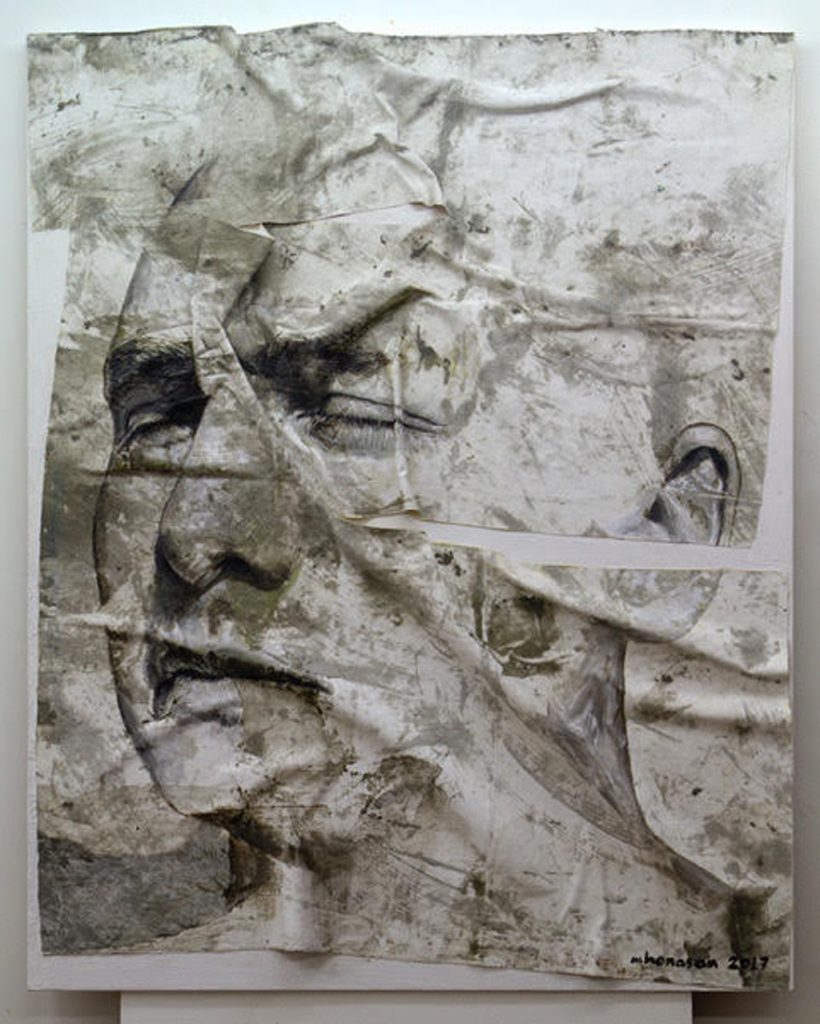Pulô
Martin Honasan
June 9- June 22, 2017

Pulô
9 June 2017 – 22 June 2017
The best place to start discussing Pulô is Martin Honasan’s creative process. While the artist had always been purposive about his work, there was also a certain passivity with how his art came together. Reactionary, always indoors, with a lot of time waiting for patterns to emerge organically, the end result being usually his wife’s face. The fact that it is Barbie’s face he sees first and always is noteworthy. Eleven years ago when they married, Martin’s family suddenly ballooned to the hundreds to accommodate hers. This was an overwhelming phenomenon, one he did not have the language to express himself about in the beginning. But now, more than a decade later, he returns to his wife’s roots to dive in wholly.
Pulô is a place as much as it is also a new season for Martin Honasan, the artist. He took twenty feet of canvas with him to this provincial seaside in Culasi, Capiz and allowed even the environment there to participate. He calls this a “symbolic immersion”, where the sea and sand and air did what it could along with the artist’s brush. During this time, new patterns emerged as well. Henry and Linda and many others whose portraits are now displayed, all natives of where he now belongs to. These were faces he always viewed as strange to him, otherworldly. But the time spent proved that indeed his territory had expanded as it should have. His wife’s world was now his world, too.
This is the starting point for this new series: an exploration of this small beach cove his wife had grown up in and the area surrounding it. It was a family trip with intent to react and respond to this place, to the people and its culture with his own newly opened eyes. A sensory experience where he became a sponge soaking in everything.
And the result is Pulô: a fresh point of view with a muted palette, not needing any more pomp and circumstance to tell its stories. And he found that peoples’ hopes and dreams really were similar, no matter where they were. The people of Culasi and beyond that he used to view with a foreigner’s eyes were no different from the realities he was familiar with. That maybe these islands that separate us don’t necessarily mean our minds and spirits need to be divided as well. And that maybe home did not have to be a place you were simply born into, but one you could embrace with all your heart.
While marriage may be abrupt, it is also beautiful, the melding of two lives and two families and two homes to make present and future sense. And so this is Pulô: an expedition that ends in peace and acceptance.
—Patricia Malay